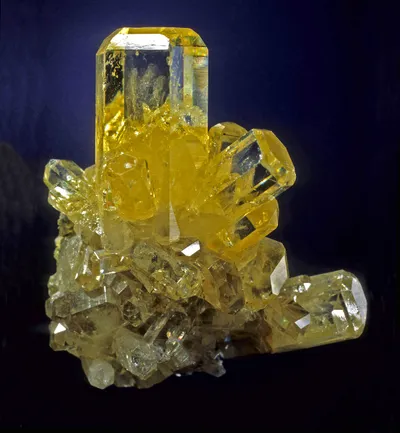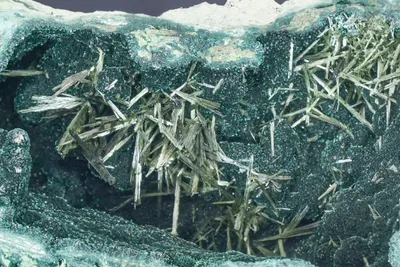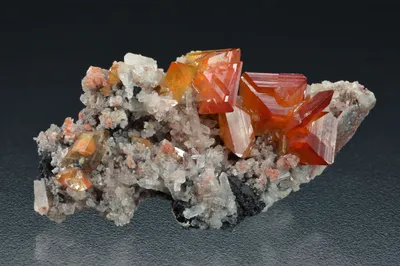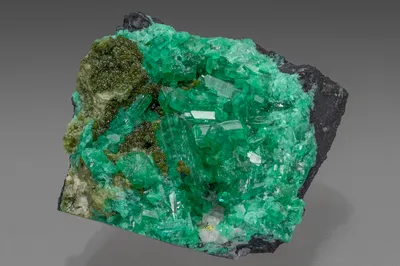Mineral Species
Gartrellite
Type Locality
No
Composition
Pb(CuFe3+Zn)(AsO4,SO4)2.(H2O,OH)2
Crystal System
Triclinic
Status at Tsumeb
Confirmed
Abundance
Very rare
Distribution
First, second and third oxidation zones
Paragenesis
Supergene
Entry Number
Species; TSNB144
General Notes
Gartrellite is a member of the tsumcorite group of minerals and was described as a new species in the late 1980s from two Australian deposits that share type locality status (Nickel et al. 1989). However, prior to its formal description, gartrellite was known from Tsumeb under the working name of Mineral TK (Keller 1977a).
Keller (1977a) noted that Mineral TK is "… a Pb-Fe arsenate containing small amounts of Cu and Zn." He described its occurrence as "… dark green, tabular to scaly" crystals formed on carminite in a distinctive low pH (Type II) paragenesis as follows:
II/1: primary sulphide >> beudantite >> carminite >> anglesite >> mineral TK [= gartrellite]
Keller (1984) expanded his description of "Mineral TK", noting that it occurs as twinned microcrystals, dull olive-green or light yellow-green in colour.
Gebhard (1999) noted the occurrence of gartrellite with beudantite, but also with duftite and with tabular crystals of bayldonite.
The famous 1971 discovery of "Gem Pocket" mimetite, from 28 Level in the second oxidation zone includes gartrellite (XRD/EDS confirmed; M. Southwood unpublished data) as a powdery yellow coating on the matrix that provides an attractive backdrop for the crystals but also influences the perceived colour of the mimetite itself.
Krause et al. (1998) commented on the remarkable colour variation shown by gartrellite, with yellows, browns and greens and a continuum of shades inbetween. The streak, however, is invariably bright yellow. Nevertheless, gartrellite is readily confused with certain other members of the tsumcorite group, notably zincgartrellite, tsumcorite and ferrilotharmeyerite, and also with beaverite. Compositional analysis (ideally quantitative) is needed for certain identification.
Associated Minerals
anglesite; arseniosiderite; arsentsumebite; azurite; bayldonite; beudantite; carminite; cerussite; chenevixite; dolomite; duftite; malachite; metazeunerite; mimetite; olivenite; philipsbornite; quartz; tsumcorite; wulfenite; zincolivenite





